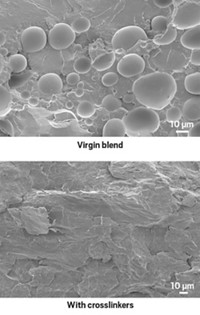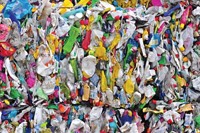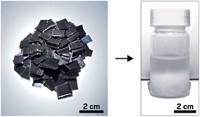Advertisement
Grab your lab coat. Let's get started
Welcome!
Welcome!
Create an account below to get 6 C&EN articles per month, receive newsletters and more - all free.
It seems this is your first time logging in online. Please enter the following information to continue.
As an ACS member you automatically get access to this site. All we need is few more details to create your reading experience.
Not you? Sign in with a different account.
Not you? Sign in with a different account.
ERROR 1
ERROR 1
ERROR 2
ERROR 2
ERROR 2
ERROR 2
ERROR 2
Password and Confirm password must match.
If you have an ACS member number, please enter it here so we can link this account to your membership. (optional)
ERROR 2
ACS values your privacy. By submitting your information, you are gaining access to C&EN and subscribing to our weekly newsletter. We use the information you provide to make your reading experience better, and we will never sell your data to third party members.
Catalysis
One-pot method turns polyethylene into valuable detergent precursor
Pt-catalyzed upcycling process doesn’t use solvents or relatively high temperatures
by Leigh Krietsch Boerner
October 24, 2020
| A version of this story appeared in
Volume 98, Issue 41

Though polyethylene (PE) is recyclable, the high-temperature, energy-intensive process yields only low-value products. As a result, industries don’t earn enough money to make recycling PE worth their effort. Now Susannah Scott and coworkers from the University of California, Santa Barbara; the University of Illinois; and Cornell University have developed a catalytic process to upcycle PE into something of higher value: long-chain alkylaromatics (Science 2020, DOI: 10.1126/science.abc5441). Scientists can sulfonate these compounds to make detergents and surfactants. The market for one of the alkylaromatics, linear alkylbenzenes, is about $9 billion per year. To upcycle PE, the researchers seal either high- or low-density PE and an alumina-supported platinum catalyst in a reaction vessel. They then heat the materials to 280 °C for 24 h. The polymer melts and then reacts with the catalyst, releasing H2. This hydrogenolysizes the PE, and these smaller bits of polymer then aromatize to give the higher-value products in 80% yield. This method “couples a thermodynamically unfavorable reaction, the aromatization, with a thermodynamically favorable reaction, the hydrogenolysis,” Scott says, a key step to getting the temperature below 300 °C.





Join the conversation
Contact the reporter
Submit a Letter to the Editor for publication
Engage with us on Twitter